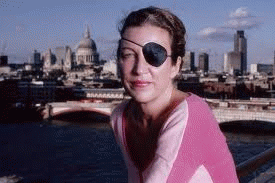It has been a bad year for journalists. We lost the Sunday Times' legendary war correspondent Marie Colvin -- her injured colleague, in a recent Vanity Fair piece, believes they may have been targeted after she appeared reporting from Syria on the BBC. William Dobson's new book, The Dictator's Learning Curve: Inside the Global Battle for Democracy, explains that autocrats and anti-democracy forces around the world are learning how to be nimbler and more efficient in suppressing populations, and one way to do this is control of news reporting in spots where abuses are taking place.
If you scan the reporting of Reporters Without Borders (and the examples they investigate of harassment, imprisonment and other assaults on journalists worldwide are extensive), you see subtle new patterns developing: in Jordan, for instance, a new law criminalizes with penalties as severe as hard labor such vaguely defined crimes as offending public decency, or any reporting that threatens "national security" or "public order." Reporters Without Borders concludes that this type of soft coercion chills investigative reporting. On the other side of the autocrats' toolbox of repression, there are regimes that don't bother with new laws because they just keep foreign journalists out or mow domestic reporters down: Bahrain's massacres, like Syria's, RWB asserts, are proceeding without check because they are out of range of cameras.
This is one major reason the world is becoming more dangerous for news reporters -- who used to be protected by an unspoken convention that they were above the conflict. A turning-point in this newly hostile targeting of journalists was reached when Donald Rumsfeld began demonizing al-Jazeera. As many journalists believe, reporters and cameramen covering the Iraq war who were based in the Palestine Hotel were deliberately targeted, causing injury and death. We have reports that, in the first half of this year alone, 29 journalists have been killed, and 161 imprisoned, with comparable numbers for netizens and citizen journalists affected. The same defense of reporting organization notes that Ecuador's President Rafael Correa has begun to attack journalists personally -- always a harbinger of danger to reporters -- in addition to closing 17 news outlets that have been critical of the government.
Which is why Sherine Tadros' and Ayman Mohyeldin's new film, The War Around Us, is so extraordinary. It tells the story of people imprisoned and helpless to escape as bombs began falling -- and it is also a narrative with the old-fashioned trope of war correspondent as hero.
Neither of these reporters had to choose lives in which they faced such danger and privation. Both are children of some privilege: Tadros was raised in London, and has two degrees in politics. Mohyeldin's Egyptian-Palestinian family lives in the west now; he was educated at the American University in Washington, DC, and was hired by CNN and other networks. The two chose al-Jazeera at a key point in their careers because both felt a mission to bring the voices of the voiceless in the Middle East to the attention of the rest of the world. When Mohyeldin was stationed in Gaza in 2008, and Tadros was sent there to help produce his segments for what she thought was a day, but turned out to be a dangerous three weeks, their lives were changed.
As the conflict started, most foreign journalists were recalled, reporting "on Gaza" from the relative safety of Jerusalem, Tel Aviv and Cairo. Mohyeldin and Tadros were the last reporters to stay in Gaza. Because they chose to stay, and finally had no safe way out, the world now has footage of what that bombardment actually looked like from the point of view of the Gazan citizens under attack. Tadros believes the western media tends to stereotype Gazans:
"People tend to think of Gaza as this far-flung place: they are all terrorists, or hardline Islamists. All we were trying to do was humanize what was going on."
The bombardment's intensity made the reporters believe at first that it couldn't go on more than a day, as more Gazans died in the first day of the attack than ever had before in one day. But it did. Mohyeldin notes:
"Not only could you not imagine that the unleashing of that kind of damage could continue, but you could not imagine that the world would stand by and stay silent."
Mohyeldin and Tadros are the unlikely faces of this kind of conflict journalism: both young and telegenic. Tadros is still with al-Jazeera, while Mohyeldin, who reported live for al-Jazeera from Tahrir Square, has been hired by NBC. But that celebrity spin, where journalism is firmly headed, is not what defines these reporters. That old-fashioned, dangerous and crucial mission -- to stay and tell the story where everyone else who could be a witness for the world has fled -- is what defines them.
Conflict zones are growing in complexity. According to Mexican journalists I interviewed in February, the government stands by, apparently unconcerned, as their colleagues are mown down by cartels who don't want to be reported upon. In the absence of effective state protection, Mexican journalists are asking for international action on their behalf.
What might that look like? The means of recourse we have now are too slight: Reporters Without Borders maintains two desks and administers legal aid money for reporters in trouble; promotes petitions and supports families of reporters in jail. But it may need the greater clout of a global organization, acting perhaps as an adjunct to existing regional ones, to pressure governments through diplomacy and perhaps even with a mix of economic incentives and sanctions. It will take an alliance of investors, diplomats, media professionals and concerned citizens to exert real pressure and attach real consequences to the dire act of harming or suppressing a journalist.
For the autocrats know that without a free press to report on their misdeeds, they have nothing to fear from the west's rhetorical invocations of democracy.






